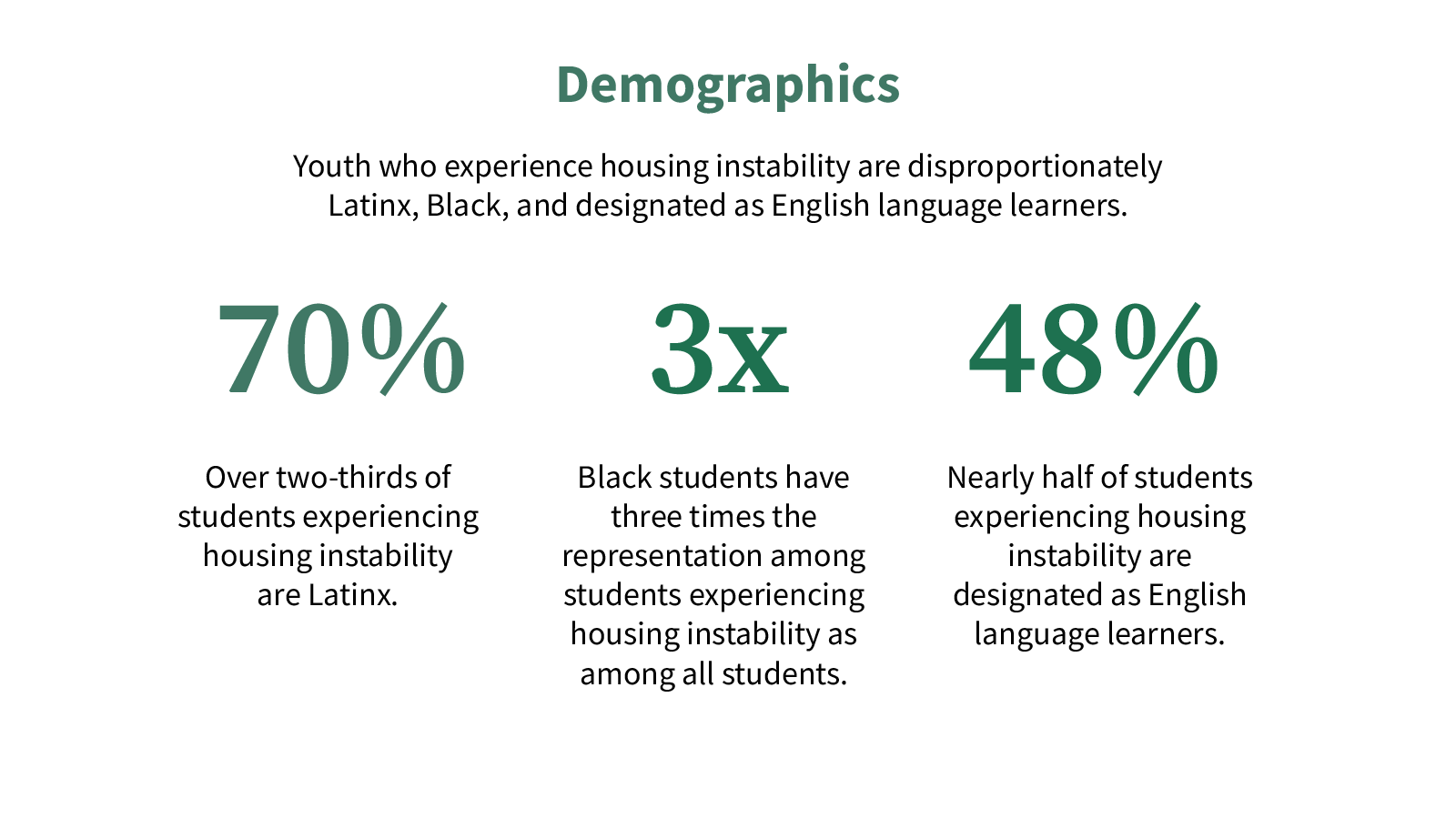May 9, 2022 · 3 min read
Housing Instability and Educational Outcomes in San Mateo County
Funded by CZI, a New Report from Stanford’s Gardner Center Links Housing Instability to Chronic Absenteeism, Lower Graduation Rates, and Higher Suspension Rates Among Students

A new research effort by the John W. Gardner Center at Stanford University has underscored the link between housing instability and educational outcomes for students in San Mateo County. Funded by the Chan Zuckerberg Initiative’s (CZI) community team, this report found that approximately 2,600 students experienced housing instability between 2016 and 2019 — making them up to six times more likely to be chronically absent from school and four times more likely not to graduate high school. Affected students were also disproportionately Latinx, Black, and English language learners.
The report’s findings are the result of a rich analysis of school administrative data from nearly all of San Mateo County’s school districts. Through in-depth interviews with district staff, the researchers also identified the key problems contributing to poor educational outcomes for homeless and housing unstable students, as well as possible solutions.
“Through the Gardner Center’s findings, it’s clear that homelessness and housing insecurity adversely impact educational outcomes for far too many students across San Mateo County, especially our Black and LatinX students,” said Darnell Cadette, Director of Strategy and Operations for the Community team at CZI. “We can all play a role in ensuring that every student — regardless of their background or life circumstances — has access to the resources, tools, and services they need to thrive. CZI is honored to support this report and the researcher’s strategic recommendations for serving homeless and housing insecure students in our community.”
For local cities and service providers that are looking for ways to help local students, the report provides aggregated outcomes data that has been analyzed with housing instability as its focus. Stakeholders can use this analysis to provide more support and direct services to students facing housing instability and homelessness.
“This report provides a really sober look at our own community and shows how we have an opportunity now to make a difference because we have this understanding,” said Amy Gerstein, executive director of the John W. Gardner Center for Youth and Their Communities.
Based on these findings, the report concludes that youth experiencing housing instability face a range of unique challenges, and there are concrete actions that state policymakers, local and county leaders, school district leaders, and leaders from youth-serving organizations can take to help ensure positive and equitable outcomes.
- Establish a state-level commitment to understand and address the needs of youth who are experiencing housing instability.
- Create conditions to ensure accurate data collection and reporting about youth dwelling status by leaders of school districts and service providers.
- Provide discreet opportunities and incentives for students and/or their families to disclose their precarious housing status, focusing on avenues that foster ease, confidentiality, and agency.
These recommendations are a step in the right direction to ensuring that all students in San Mateo County — regardless of their background or life circumstances — have access to the tools, resources, and services they need to succeed academically.

###
About the Chan Zuckerberg Initiative
The Chan Zuckerberg Initiative was founded in 2015 to help solve some of society’s toughest challenges — from eradicating disease and improving education, to addressing the needs of our local communities. Our mission is to build a more inclusive, just, and healthy future for everyone. For more information, please visit chanzuckerberg.com.
About the John W. Gardner Center for Youth and Their Communities
The Gardner Center partners with communities, researchers, and practitioners to conduct rigorous research, support evidence-based practices to improve and strengthen the well-being of youth, and emphasize equity and capacity-building in youth-serving organizations.





